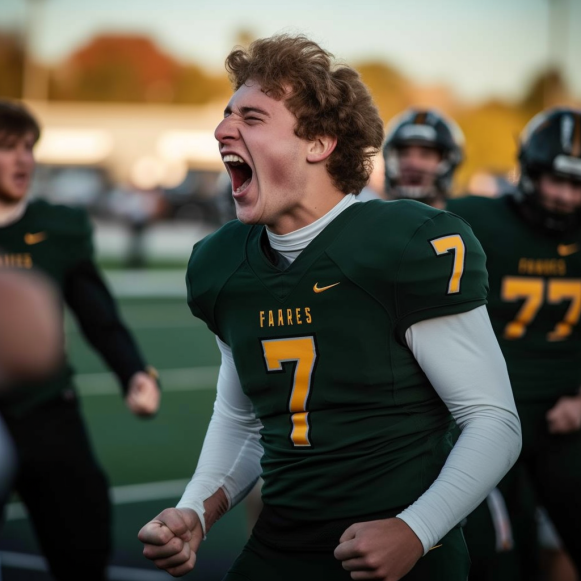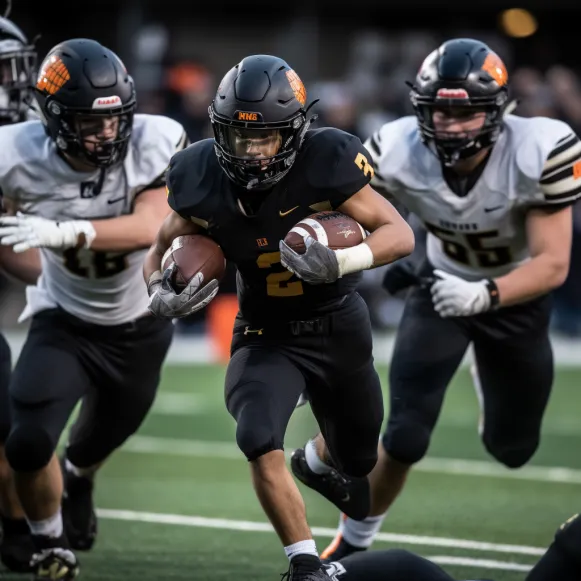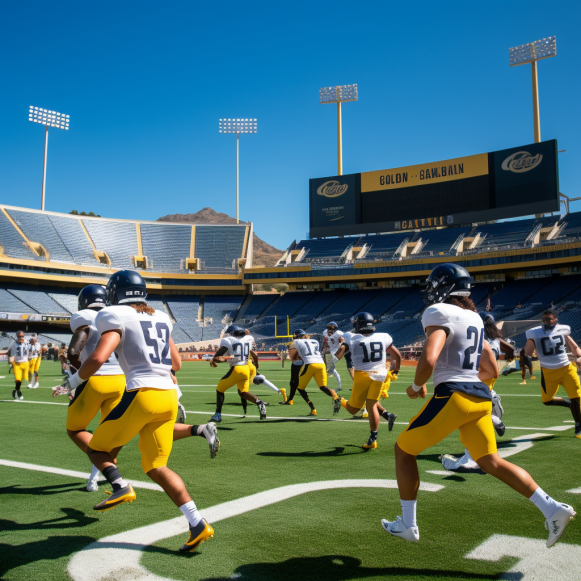Pac-12 legal affairs: Our predictions for the hearing on lawsuit filed by WSU and OSU
A judge in Whitman County (Wash.) will preside Tuesday, if it gets that far
As the Pac-12’s final football season approaches, the conference is nearing a resolution on another contentious issue: control of hundreds of millions of dollars in revenue and assets.
The lawsuit, filed in early September by Washington State and Oregon State, is set for a critical hearing on Tuesday in Whitman County (Wash.) Superior Court, where Judge Gary Libey could determine the makeup of the governing board and, thus, control of the finances.
Or perhaps he will not rule on Tuesday.
Or perhaps the process will be terminated before the hearing even begins.
The outlook is bleak, but the stakes are clear — and high.
When the ten outbound schools agreed to join other conferences beginning next summer, the Cougars and Beavers believe they relinquished their board positions.
The ten outgoing schools believe they have not violated Pac-12 bylaws and should keep their board seats.
The Cougars and Beavers believe that if they are allowed to stay on the board, the departing schools will vote as a bloc to dissolve the conference and divide the assets evenly among the 12 universities.
The ten outbound schools believe that if WSU and OSU are given control of the board, they will keep all of the conference’s assets, including more than $400 million in revenue generated this school year when all 12 compete under the Pac-12 banner.
Time is critical for both WSU and OSU. It has been 100 days since the Pac-12 collapsed on Aug. 4, and they need clarity on the conference’s governance — as well as the resources available — to plan their strategy for the 2024-25 competition season and beyond.
How might the situation play out?
Let’s get started…
Scenario I: Mediated settlement
In early October, the plaintiffs and defendants agreed to enter mediation. Because there have been no leaks thus far, determining the level of progress, or lack thereof, is difficult.
We can, however, look at the situation through the lens of… wait for it… common sense.
The Cougars and Beavers are at odds over both money and governance. They want control of the Pac-12’s long-term assets, including NCAA Tournament units worth approximately $60 million and potential Rose Bowl revenue of $80 million. They also want sole control of the governing board in order to determine their own futures and prevent the conference from dissolving. Of course, with the board seats comes control over the revenue for 2023-24.
(One possibility is to compete as a two-school league for two years before adding Mountain West teams.)
The dispute, according to the departing schools, is about money. According to court documents, they are less concerned with the conference’s future assets and more concerned with their share of revenue in 2023-24. The figure given is $420 million, which equates to about $35 million per school.
As we see it, there is room for negotiation:
The ten outgoing schools relinquish their board votes, allowing WSU and OSU to control the conference’s future; in the meantime, WSU and OSU agree to distribute the majority, if not all, of the 2023-24 revenue.
How much is it? We don’t know. Perhaps the ten outbound schools will agree to accept $25 million or $30 million per campus.
Why wouldn’t they go to court and try to get every last dime of their full $35 million shares?
They don’t want to spend money on billable hours or risk losing in court and ending up with nothing — no control, no current-year revenue, and no long-term assets.
The likelihood of a settlement is 50%.
Scenario II: The case will be concluded on Tuesday.
The context is straightforward, with WSU and OSU opposing the ten departing schools. However, the details are tricky. The conference, along with commissioner George Kliavkoff, is the named defendant, not a school. (He is, after all, still the commissioner.)
Meanwhile, one school has filed a motion to intervene in the case: Washington, because it is located in the state where the lawsuit was filed.
The Huskies, speaking on behalf of all ten departing schools, oppose the request for a preliminary injunction that would give WSU and OSU board control.
Libey’s courtroom is 15 miles from the WSU campus. In September, he ruled in favor of the Cougars and Beavers, granting their request for a temporary restraining order, which halted board business.
If no settlement is reached and the hearing is held on time Tuesday (2 p.m.), Libey is expected to rule on the preliminary injunction request.
He could make a decision at the end of the hearing, or he could choose to review the case for a period of time.
In either case, Libey, like many judges, could indicate his preference during the proceedings. WSU also has home-court advantage.
However, a decision does not imply resolution.
Probability of conclusion Tuesday: 0.1 percent (if no settlement is reached).
Scenario III: The loser files an appeal.
Context: It’s difficult to imagine a scenario in which Libey’s decision is nuanced enough to satisfy both sides.
As a result, multiple sources familiar with the case expect the loser to immediately appeal Libey’s ruling to the Washington Supreme Court in Olympia.
In fact, this could have been Washington’s intention all along.
Why? Because an appeal would turn a 15-mile-from-Pullman road game into a neutral-court affair.
It may even provide an advantage to the defendants. Olympia is about an hour’s drive from Seattle. The presiding judges are almost certainly UW alumni.
How long could it take for an appeal to be heard? Possibly a few weeks; possibly a few months.
The likelihood of an appeal is 99.9% (assuming no settlement).






